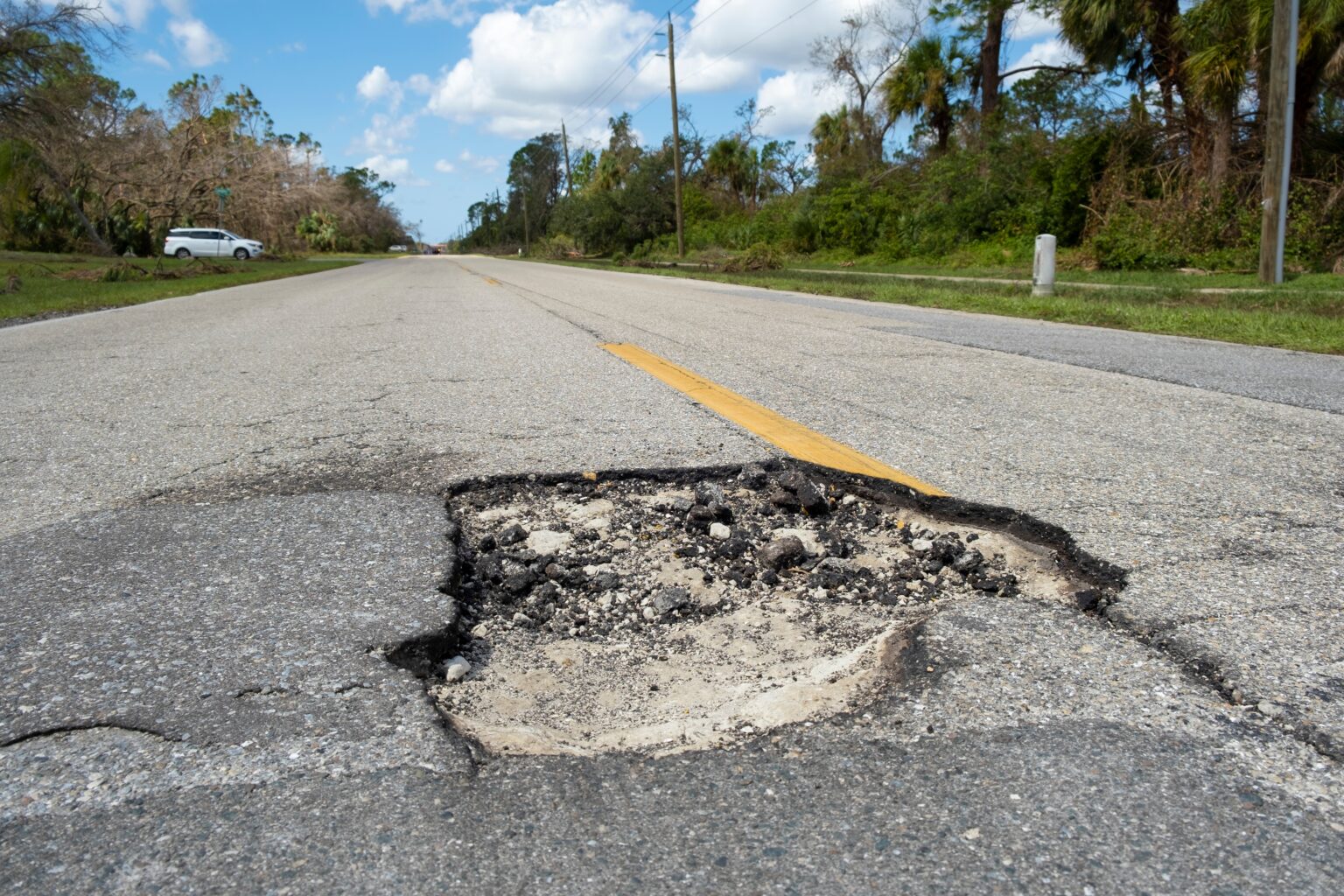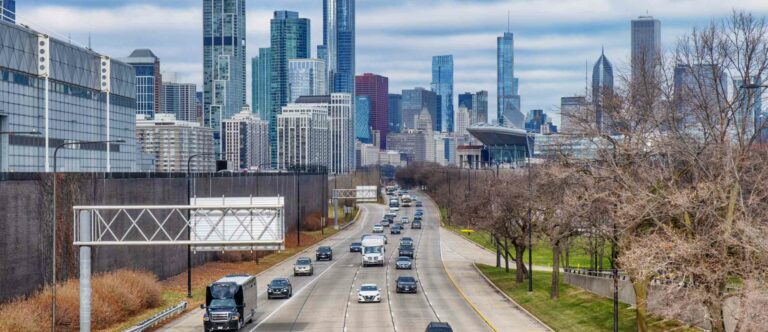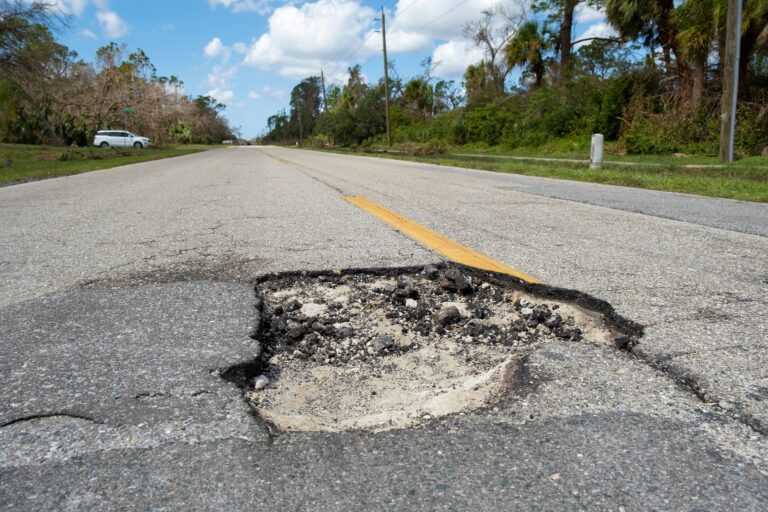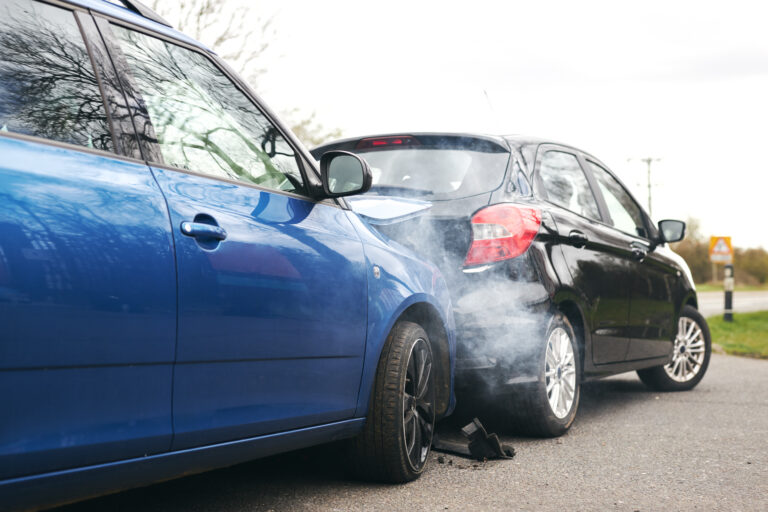The drive home is the most routine part of your day, until it is not. One second you are moving with the flow of traffic, and the next, your car violently hits a crater-like pothole or you are swerving to miss a piece of metal that fell from a truck.
The aftermath is a disorienting mix of a damaged vehicle, potential injuries, and a profound sense of unfairness. You did everything right, but you are the one left to deal with the consequences. This naturally leads to the frustrating question: who is liable if a road hazard causes a car accident?
The answer is not straightforward and opens up a complicated investigation into who was responsible for keeping that specific road safe for travel. Pinpointing legal responsibility, which is also called liability, is a process. It involves looking at the specific facts of what happened and understanding the legal duties of different parties.
A knowledgeable Chicago car accident lawyer can help guide you through this investigation, determine who may be held accountable, and explain your legal options clearly.
- Liability depends on who was tasked with maintaining the roadway.
- The type of hazard often gives clues about who might be at fault.
- A key part of the process is showing that a responsible party was aware of a danger and failed to address it.
The Duty to Maintain Safe Roads
When the condition of the road itself causes a car accident, the focus shifts away from the drivers involved to the entity that owns or controls the roadway. In the eyes of the law, these entities have a “duty of care” to the public. This is a legal term that means they have a responsibility to act reasonably to prevent foreseeable harm to others.
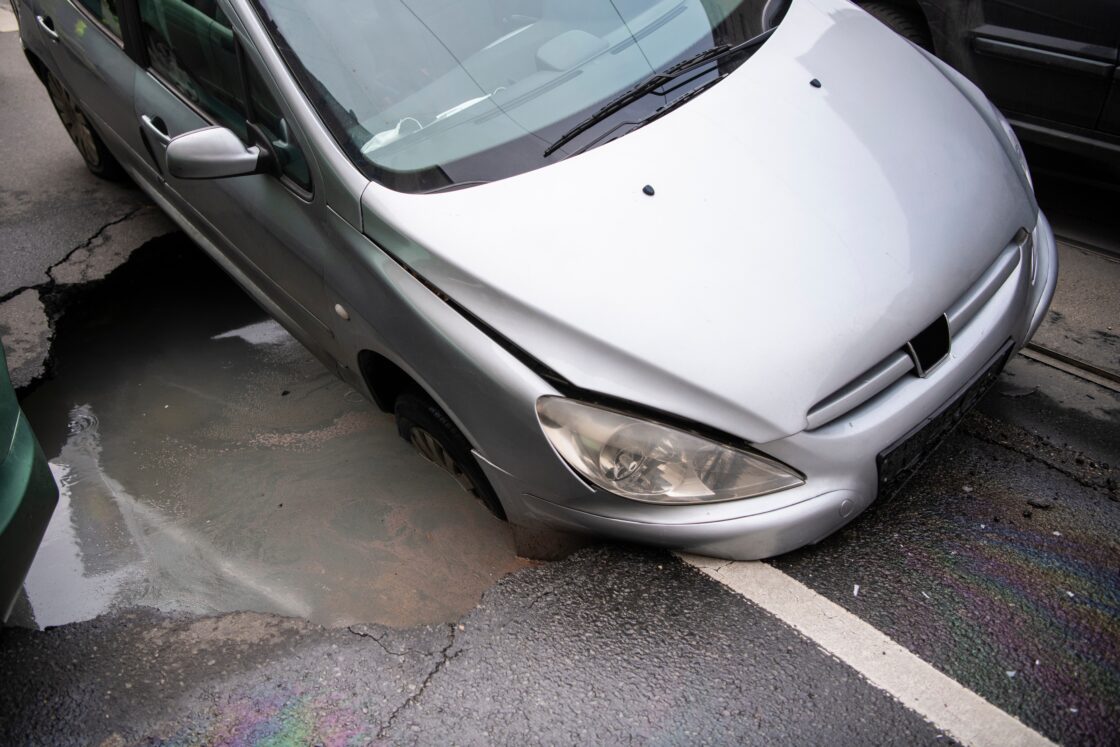
For a road owner, this means taking steps to design, build, and maintain roads that are reasonably safe for public use. The search for who is liable in a road hazard accident almost always begins by identifying which entity had this duty of care for the specific location where the accident occurred.
Figuring this out is like peeling back the layers of an onion, as responsibility can fall to several different types of parties.
- Government Agencies: This is the most common responsible party. Public roads, from small neighborhood streets to massive highways, fall under the jurisdiction of a city, county, or state agency.
- Private Contractors: When construction or major repairs are underway, the private company hired to do the work often assumes the duty of care for that work zone.
- Other Drivers: A motorist can instantly create a dangerous hazard by allowing cargo or vehicle parts to fall into the path of traffic.
When a Government Agency is Held Liable for a Road Hazard Accident
Most of the roads we drive on are public property. In Chicago, this means a road could be managed by the City of Chicago, Cook County, or the Illinois Department of Transportation (IDOT).
Each government body is responsible for maintaining its own network of roads. However, filing a claim against a government entity is uniquely challenging due to a legal shield called “sovereign immunity,” which provides the government with protection from many lawsuits.
This shield is not unbreakable. The government can be held liable if a person can demonstrate that the agency had “notice” of a dangerous condition and did not remedy it in a reasonable amount of time. “Notice” means the agency either knew about the problem (actual notice) because it was reported, or that the problem existed for so long that they should have known about it through regular inspections (constructive notice).
Common Issues Pointing to Government Liability in a Road Hazard Accident
Certain dangerous conditions are frequently at the center of claims against government bodies. These often stem from neglected maintenance or poor original design.
- Potholes and Pavement Defects: The dramatic temperature swings in Chicagoland create a constant battle against potholes. If the city gets multiple 311 calls about a dangerous, tire-shredding pothole on a street like Western Avenue and fails to dispatch a crew to patch it, they could be held liable for a resulting crash.
- Failed Traffic Control Devices: Imagine a traffic signal going dark at a five-way intersection or a stop sign being knocked down and not replaced for days. The agency in charge of traffic signals and signs has a duty to repair these issues promptly to prevent accidents.
- Poorly Designed or Maintained Roads: Liability can also arise from the road’s fundamental design. This could be a curve on Lake Shore Drive that is too aggressive for the posted speed limit, an off-ramp with poor sight lines, or the absence of a guardrail next to a steep drop-off. Overgrown trees that block visibility of traffic signs can also fall into this category.
The Unique Process of a Claim Against the Government
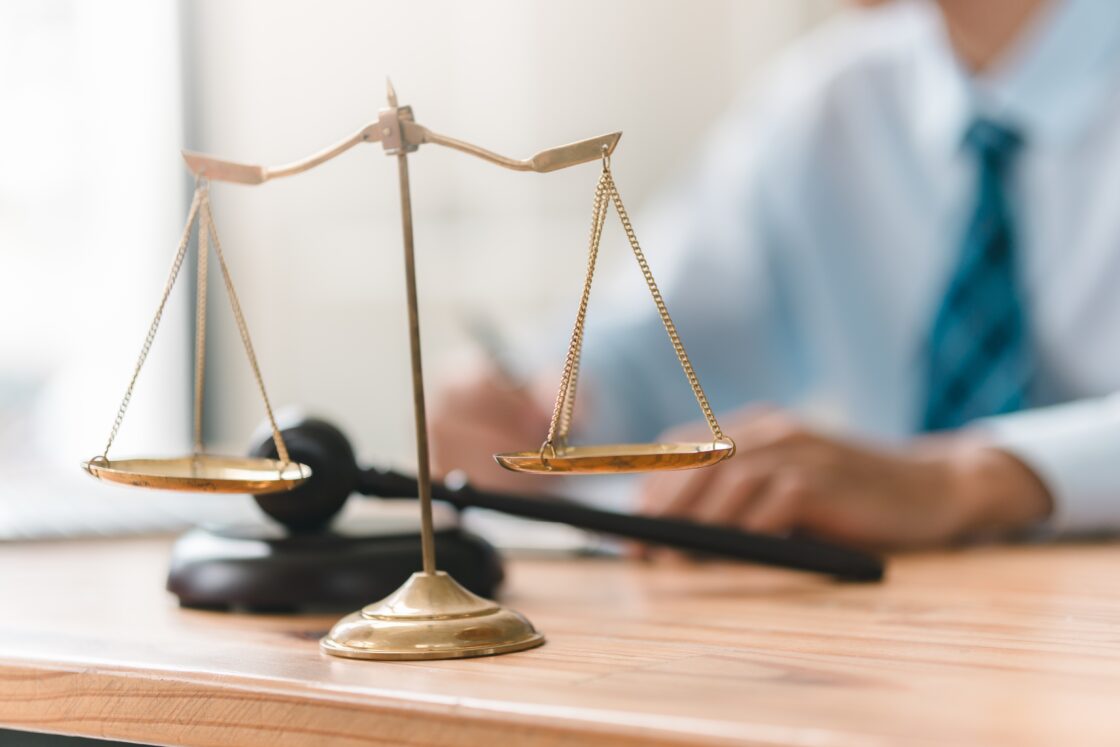
Pursuing a claim against a government body is not like dealing with a typical insurance claim. The procedural rules are extremely strict, and failing to follow them perfectly can result in your claim being denied before it even gets started.
- Strict Notice Requirements: In Illinois, before you can file a lawsuit against a local government entity, you must file a formal “notice of claim.” This document must be filed with the correct agency, often within one year of the incident. This is a much shorter window than for other types of injury cases.
- Shorter Statutes of Limitation: The statute of limitations, which is the legal term for the deadline to file a lawsuit, is also shorter. For many claims against local governments in Illinois, the deadline is just one year. This is half the time allowed for a typical car accident lawsuit.
- A Demanding Burden of Proof: You carry the weight of proving the government knew or should have known about the specific hazard that hurt you. This might involve finding public works records, previous complaints about the location, or expert testimony about how long the defect must have existed.
When a Private Contractor is Liable for a Road Hazard Accident
Our city is in a perpetual state of renewal, meaning road construction zones are a part of daily life. When a government agency hires a private construction company for a project, that company takes on the legal duty to keep the work zone safe for drivers.
If they are negligent in how they set up or manage the site, and that negligence leads to a crash, the contractor can be held liable. Their job is not just to do the work, but to do it in a way that protects the public moving through their site.
Contractor Negligence That Can Make Them Liable in a Road Hazard Accident
These private companies have to follow detailed state and federal regulations for work zone safety. When they fail, the consequences can be severe.
- Inadequate Warnings and Signage: A work zone needs clear, advance warning signs that are well-lit and properly placed. A lack of warning about a sudden lane shift, a new traffic pattern, or a rough, grooved pavement surface is a common form of negligence.
- Unsafe Detours or Drop-Offs: Creating a temporary detour with sharp, unmarked turns or leaving a dangerous pavement drop-off without clear markings can easily cause a driver to lose control.
- Debris and Spills: Contractors are responsible for cleaning up materials, dirt, gravel, or spills that could make the roadway slick or hazardous. They must also properly secure all of their materials and equipment so they do not fall or blow into active traffic lanes.
When is Another Driver Liable if a Road Hazard Causes a Car Accident?
Sometimes a road hazard is not a pre-existing condition but something that is created in a split second by another motorist. When a driver fails to secure their vehicle or their cargo properly, they can turn a public road into a dangerous obstacle course for everyone behind them.
This type of incident is most common on highways, where high speeds reduce reaction times to near zero. A driver who allows something to fall from their vehicle is negligent and can be held fully responsible for the accidents that result.
Common Hazards Caused by Other Drivers
A driver’s responsibility extends beyond just controlling their vehicle; it includes everything on or in it.
- Unsecured Cargo: This is a major cause of highway accidents. It could be a commercial truck losing construction materials or a private pickup truck losing a ladder or a piece of furniture on the Eisenhower Expressway. The party responsible for loading and securing the cargo is at fault.
- Detached Vehicle Parts: A “gator”—the large strip of tread that peels off a semi-truck’s tire—can cause a driver to swerve or can damage a car’s undercarriage upon impact. Other parts, like a muffler or a piece of trim, can also fall from a poorly maintained vehicle.
- Spilled Loads: Open-top trucks carrying gravel, scrap metal, or other loose materials can spill their contents if they are overloaded or not properly covered, creating a dangerous and unpredictable road surface.
The biggest difficulty in these cases is identifying the at-fault driver, who may be long gone. Without a license plate number from a witness or your own dashcam, it can be nearly impossible to track them down. In this “phantom vehicle” scenario, you may need to rely on your own Uninsured Motorist insurance coverage.
Exploring the Path to Recovery

Figuring out who is liable if a road hazard causes a car accident is a methodical investigation process. It requires identifying the hazard, determining who had the duty to prevent or fix it, and gathering the evidence to show they failed in that duty.
This is a complex journey to undertake while you are also focusing on recovering from your injuries, getting your car fixed, and managing the disruption to your life.
You should not have to face this complicated process alone.
If you were injured in a crash caused by a dangerous road condition in the Chicago area, the team at Walner Law can help you understand your situation. A skilled Chicago personal injury lawyer can assess your case and explain the legal options available. We are here to listen to your story and discuss the potential paths forward. For a conversation, please call us at (312) 410-8496.
Common Questions Following a Road Hazard Crash
What is the most useful evidence to have after a road hazard accident?
If you can do so safely, photographs are incredibly helpful. Take pictures of the hazard itself (the pothole, the debris, the obscured sign), the damage to your vehicle, and the surrounding area. A police report is also very valuable, as it creates an official record of the incident.
How can I prove the city knew about the pothole that caused my crash?
Proving the city had “notice” can be done by searching for public records of prior complaints about that specific location. For example, your attorney could file a Freedom of Information Act (FOIA) request for all 311 calls or maintenance records related to that stretch of road for the months leading up to your accident.
Will my own driving be scrutinized?
Yes. The other side’s insurance company or lawyers will almost certainly look at your actions. This is why the legal rule of “modified comparative negligence” is so relevant. They will check if you were speeding, distracted, or otherwise driving in a way that contributed to the accident. In Illinois, if you are found to be 51% or more at fault, you are not able to recover compensation.
What is Uninsured Motorist (UM) coverage and how does it help?
Uninsured Motorist coverage is a part of your own auto insurance policy that protects you if you are hit by a driver with no insurance or in a hit-and-run situation. It can also apply in a road hazard case where the debris came from a “phantom vehicle” that could not be identified. It allows you to claim with your own insurance company to cover your damages.


 Skip to content
Skip to content

